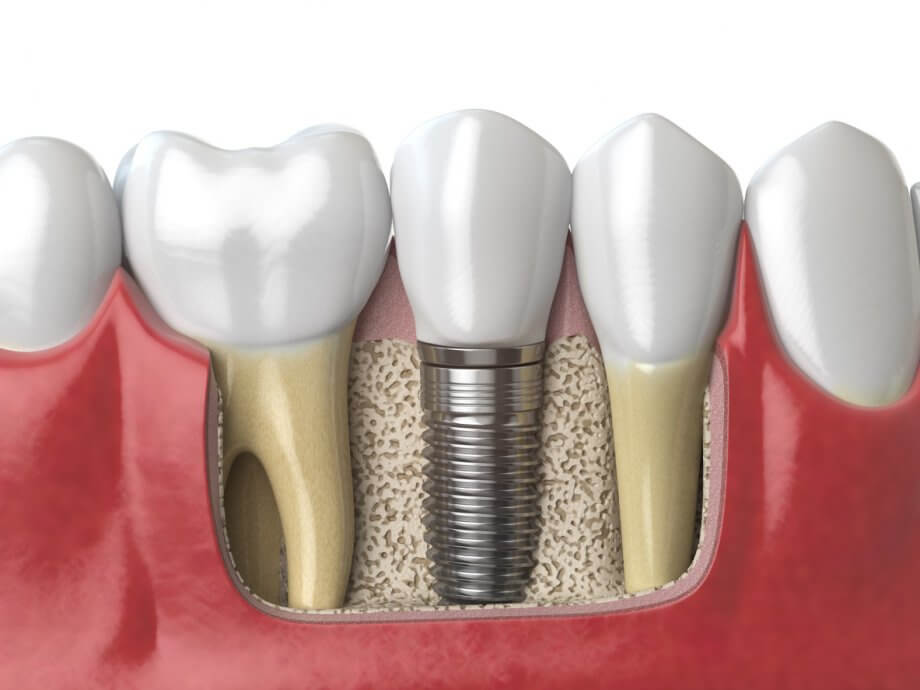Although primitive dental implants were in use in prehistoric times, the modern dental implant was developed in Sweden in the early 1960s. Dental implants quickly grew in popularity through the 1990s. Today, they are considered the treatment of choice to replace missing or failing teeth. Depending on the number of teeth that need to be replaced, there are numerous implant-based solutions. For many people, though, a single dental implant and crown is the right combination. Here is what you should know.
What Is a Dental Implant and Crown?
The combination of a dental implant and crown can replace a single missing tooth. It is possible to replace multiple teeth with individual dental implants and crowns, though many people prefer an implant supported bridge or an implant supported denture instead.
After extracting the failing tooth, we will make an incision in your gum tissue and create a tiny hole in your jawbone with a series of drills. We will then insert a dental implant made of biocompatible titanium into the hole and allow it to fuse with the bone through osseointegration. This replaces the tooth root and provides a secure, stable foundation for a customized crown.
Next, we will use an attachment known as an abutment to connect your crown to your dental implant. Made from top-quality dental porcelain, the crown will blend seamlessly with your teeth, ensuring that your smile is both aesthetic and functional.
Traditional vs. Immediate Load Dental Implants
A traditional dental implant must be covered with a healing cap or cover screw and allowed to heal for several weeks or months. You must use a temporary replacement such as a partial denture during this healing process. When osseointegration is complete, you will come back to our office for us to remove the cover and place the abutment and crown.
Immediate load dental implants are designed to take the forces of biting and chewing right away. Instead of waiting several weeks for healing, you will leave our office with your permanent crown on the same day that your dental implants are placed.
Advantages of Dental Implants
Dental implants have several significant advantages over other dental restorations. For example, a partial or full removable denture is prone to slipping and pinching, and can restore only about 25 percent of your original bite strength. A traditional dental bridge requires us to sacrifice healthy tooth structure in the anchoring teeth, putting them at risk for fracture or decay. Dental implants replace tooth roots, restoring more than 90 percent of bite strength, providing a stable anchor for replacement teeth, and leaving the adjacent natural teeth undisturbed.
Ready to Get Started?
If you are ready to start your journey to dental health with a highly experienced, family-oriented dental practice, contact Scarsdale Dental Group today at 914-723-4707 to schedule your first appointment.


